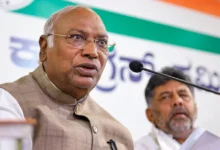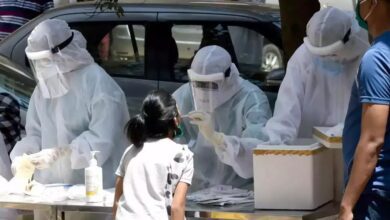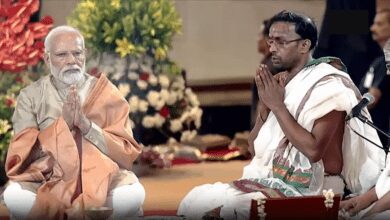India Wins Representation in Important UN Committees; Jagjit Pavadia Wins Third Term on International Narcotics Control Board
United Nations: India has won elections to a number of important UN organizations, notably the International Narcotics Control Board, when its candidate Jagjit Pavadia was re-elected for a third term after receiving the most votes.

Receiving the most votes in the fiercely contested race, Pavadia was re-elected to the International Narcotics Control Board (INCB) by secret ballot for a third term of five years, from March 2025–2030.
Additionally, India was unanimously elected to the Commission on the Status of Women for the years 2025–2029, the Executive Board of the UN Children’s Fund for the same period, and the Executive Boards of the UN Office for Project Services, UN Development Programme, and UN Population Fund for the same period.
Additionally, it was elected to the 2025–2027 terms on the Executive Boards of the World Food Programme and the United Nations Entity for Gender Equality and the Empowerment of Women.
India’s Permanent Representative to the UN, Ambassador Ruchira Kamboj, wrote on X that her country “remains steadfast in its commitment to actively engage in the discourse within these UN bodies, upholding the principle of ‘Vasudhaiva Kutumbakam’ — the world is one family.”
“Underscores our dedication to contributing constructively and collaboratively to global deliberations, fostering a spirit of unity and shared responsibility for the betterment of all,” the speaker stated of this guiding principle.
On Tuesday, elections were conducted by the UN Economic and Social Council (ECOSOC) to fill vacancies in 17 of its subsidiary organizations. These positions were elected by popular vote, secret ballot, and nomination.
The Permanent Mission of India to the UN said on X that “today is a significant triumph for India at the UN, clinching a prestigious re-election to the International Narcotics Control Board for 2025–2030 and earning seats across several key UN bodies.”
As per our overarching principle of “Vasudaiva Kutumbakam,” India would “continue, as always, to actively contribute towards deliberations in these bodies,” the Indian Mission said.
The International Narcotics Control Board has re-elected India’s candidate, Pavadia, for the period 2025–2030, according to a post on X by External Affairs Minister S Jaishankar. The elections took place in New York.
Among all the elected member nations of the Board, he pointed out that India received the most votes. He praised the Permanent Mission of India to the UN and the Ministry of External Affairs personnel, saying, “Good work.”
India received the most votes of all the winning member nations, with 41 out of the 53 ECOSOC voting members. Pavadia won the tight race handily with 41 votes, while the candidate in second place received 30 votes.
With 24 candidates vying for five seats, the race was very contested.
In a press statement, the Permanent Mission of India expressed gratitude to all of the member nations for their important support and faith in India’s candidate.
Since 2015, Pavadia has been a member of the International Narcotics Control Board. In May 2019, the Council re-elected her for a five-year term spanning from 2020 to 2025. In 2021–2022, she held the position of President of the Board.
Born in 1954, Pavadia has worked for the Government of India for 35 years in a variety of senior roles within the Indian Revenue Service. These roles have included Chief Vigilance Officer at Power Finance Corporation (1996–2001), Commissioner of Legal Affairs (2001–2005), and Narcotics Commissioner of India, Central Bureau of Narcotics (2006–2012).
The autonomous, quasi-judicial INCB was founded in 1968 to oversee the execution of the worldwide drug control treaties of the United Nations.
It has thirteen members who are not government officials but rather people chosen by the Economic and Social Council to serve in their own capacities. Ten members are chosen from a list of candidates proposed by governments, while three members with expertise in medicine, pharmacology, or pharmaceuticals are chosen from a list of candidates submitted by the World Health Organization (WHO).
On its website, the INCB provides information about its mission. It states that the organization works with governments to guarantee that sufficient quantities of medications are accessible for medical and scientific purposes and that there is no diversion of drugs from legal to illegal channels.
According to the statement, INCB also keeps an eye on governments’ control over chemicals used in the illegal production of narcotics and helps them stop such substances from being diverted into illicit commerce.
One of the six principal bodies of the UN, the 54-member ECOSOC addresses issues related to the economy, society, culture, and health in addition to basic freedoms and human rights.







